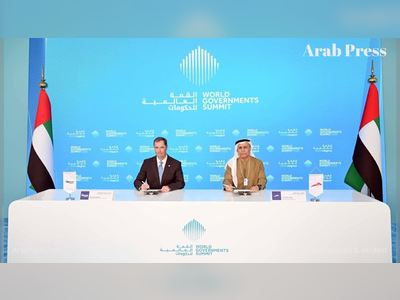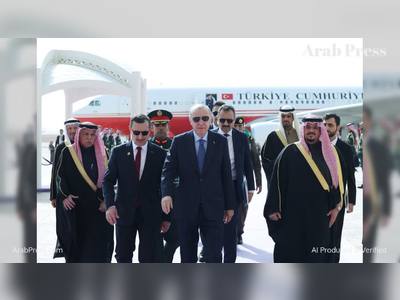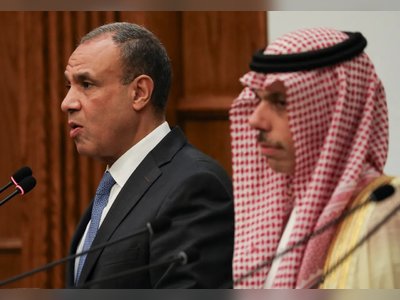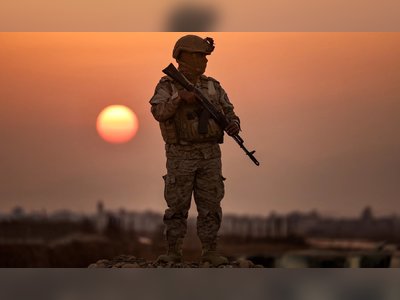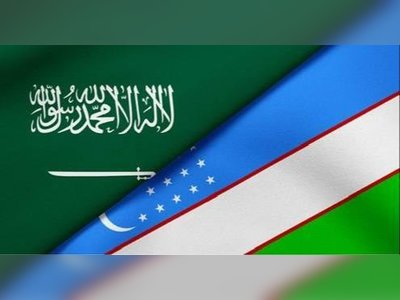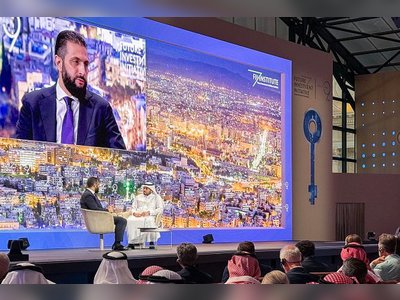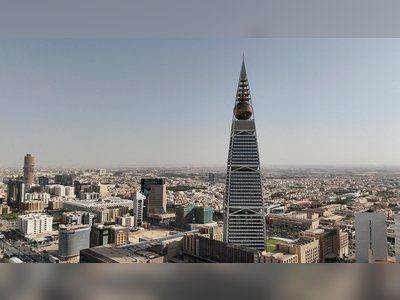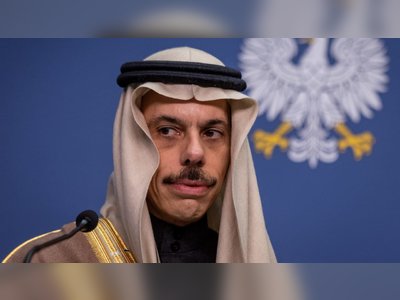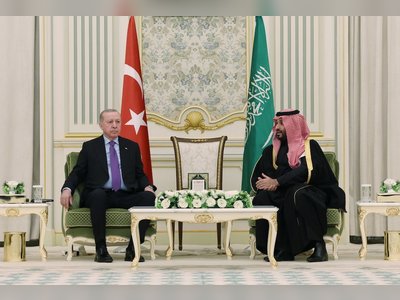
Qatar's Diplomatic Balancing Act: Navigating Gaza Ceasefire Amid Global Scrutiny
Doha faces criticism but emerges with ceasefire agreement in complex Middle East diplomacy
For over a year, Qatar has been a pivotal player in the intricate and often fraught negotiations for a ceasefire in Gaza, which recently culminated in a six-week truce and the exchange of detainees between Israel and Hamas.
While this marks a milestone in Middle Eastern diplomacy, Qatar's unique role has not been without controversy.
During the mediation process, Qatar, alongside Egypt and the United States, played a central role due to its strategic position as a host to the political bureau of Hamas.
This proximity afforded Qatar unprecedented access to the Palestinian group, enabling it to act as an essential intermediary.
However, it also sparked accusations from U.S. and Israeli legislators that Qatar supports the militant organization, an allegation Doha has consistently refuted.
The diplomatic journey was not easy.
Throughout the process, Qatar faced intense criticism, including a smear campaign featuring billboards in New York's Times Square.
Despite these challenges, the involvement of Qatar was crucial, especially after it paused its mediation role earlier this year, citing 'blackmail' and announcing its withdrawal as negotiations stalled.
Experts like Andreas Krieg of King's College London argue that such mediation efforts are a tool of Qatar's foreign policy designed to garner international attention and acceptance, particularly from its key ally, the United States.
Neil Quilliam of Chatham House further notes that Qatar's experience and persistence in Middle Eastern diplomacy have positioned it uniquely as a seasoned mediator.
The risks involved in mediating between Israel and Hamas extend beyond reputation; they also implicated Qatar's bilateral relations with Washington.
According to analysts, there was a danger that any failure in negotiations might make Qatar liable in the eyes of the United States, thereby risking its valued role as a key interlocutor.
Spokesman for the Qatari Ministry of Foreign Affairs, Majed Al-Ansari, emphasized to students in Washington earlier this year that Doha's strategy of playing the peacemaking role was long-term and strategic.
Qatar has been a mediator in numerous international conflicts, including those in Darfur, Yemen, and Afghanistan.
Recent breakthroughs in the U.S.-Qatari-Egyptian mediation with Hamas and Israel resulted in an initial ceasefire and exchange of detainees in late 2023. However, frustration had been mounting due to the lack of substantive progress throughout the past year.
In April, Qatar publicly reevaluated its role after deliberations with Israeli and American politicians who urged Qatar to pressure Hamas.
A campaign of disinformation was also uncovered over the past year, featuring coordinated anti-Qatar messaging that originated in Vietnam, attempting to undermine Doha's diplomatic efforts globally.
Meta, owner of Facebook, identified over 900 advertisements targeting Qatar's involvement, using platforms such as Facebook during an event attended by conservative U.S. political figures, including former President Donald Trump.
The newly announced ceasefire in Gaza, set to take effect imminently, follows another major development favorable to Qatar—an opposition offensive leading to significant gains in Syria, following years of conflict.
Qatar has maintained its distance from Bashar al-Assad's regime, severing diplomatic ties in 2011 amid Syria's civil unrest.
As Qatar's diplomatic endeavors in the Middle East continue, its role in the latest Gaza ceasefire signals both a challenge and an opportunity to assert its influence on a global stage, while balancing its strategic alliances and regional relationships.
While this marks a milestone in Middle Eastern diplomacy, Qatar's unique role has not been without controversy.
During the mediation process, Qatar, alongside Egypt and the United States, played a central role due to its strategic position as a host to the political bureau of Hamas.
This proximity afforded Qatar unprecedented access to the Palestinian group, enabling it to act as an essential intermediary.
However, it also sparked accusations from U.S. and Israeli legislators that Qatar supports the militant organization, an allegation Doha has consistently refuted.
The diplomatic journey was not easy.
Throughout the process, Qatar faced intense criticism, including a smear campaign featuring billboards in New York's Times Square.
Despite these challenges, the involvement of Qatar was crucial, especially after it paused its mediation role earlier this year, citing 'blackmail' and announcing its withdrawal as negotiations stalled.
Experts like Andreas Krieg of King's College London argue that such mediation efforts are a tool of Qatar's foreign policy designed to garner international attention and acceptance, particularly from its key ally, the United States.
Neil Quilliam of Chatham House further notes that Qatar's experience and persistence in Middle Eastern diplomacy have positioned it uniquely as a seasoned mediator.
The risks involved in mediating between Israel and Hamas extend beyond reputation; they also implicated Qatar's bilateral relations with Washington.
According to analysts, there was a danger that any failure in negotiations might make Qatar liable in the eyes of the United States, thereby risking its valued role as a key interlocutor.
Spokesman for the Qatari Ministry of Foreign Affairs, Majed Al-Ansari, emphasized to students in Washington earlier this year that Doha's strategy of playing the peacemaking role was long-term and strategic.
Qatar has been a mediator in numerous international conflicts, including those in Darfur, Yemen, and Afghanistan.
Recent breakthroughs in the U.S.-Qatari-Egyptian mediation with Hamas and Israel resulted in an initial ceasefire and exchange of detainees in late 2023. However, frustration had been mounting due to the lack of substantive progress throughout the past year.
In April, Qatar publicly reevaluated its role after deliberations with Israeli and American politicians who urged Qatar to pressure Hamas.
A campaign of disinformation was also uncovered over the past year, featuring coordinated anti-Qatar messaging that originated in Vietnam, attempting to undermine Doha's diplomatic efforts globally.
Meta, owner of Facebook, identified over 900 advertisements targeting Qatar's involvement, using platforms such as Facebook during an event attended by conservative U.S. political figures, including former President Donald Trump.
The newly announced ceasefire in Gaza, set to take effect imminently, follows another major development favorable to Qatar—an opposition offensive leading to significant gains in Syria, following years of conflict.
Qatar has maintained its distance from Bashar al-Assad's regime, severing diplomatic ties in 2011 amid Syria's civil unrest.
As Qatar's diplomatic endeavors in the Middle East continue, its role in the latest Gaza ceasefire signals both a challenge and an opportunity to assert its influence on a global stage, while balancing its strategic alliances and regional relationships.
